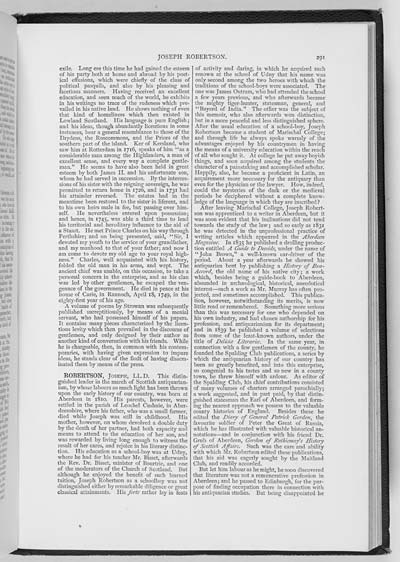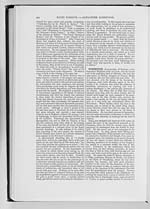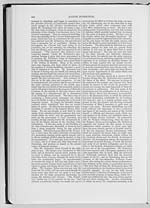291
exile. Long ere this time he had gained the esteem
of his party both at home and abroad by his poet-
ical effusions, which were chiefly of the class of
political pasquils, and also by his pleasing and
facetious manners. Having received an excellent
education, and seen much of the world, he exhibits
in his writings no trace of the rudeness which pre-
vailed in his native land. He shows nothing of even
that kind of homeliness which then existed in
Lowland Scotland. His language is pure English;
and his ideas, though abundantly licentious in some
instances, bear a general resemblance to those of the
Drydens, the Roscommons, and the Priors of the
southern part of the island. Ker of Kersland, who
saw him at Rotterdam in 1716, speaks of him "as a
considerable man among the Highlanders, a man of
excellent sense, and every way a complete gentle-
man." He seems to have also been held in great
esteem by both James II. and his unfortunate son,
whom he had served in succession. By the interces-
sions of his sister with the reigning sovereign, he was
permitted to return home in 1726, and in 1731 had
his attainder reversed. The estates had in the
meantime been restored to the sister in liferent, and
to his own heirs male in fee, but passing over him-
self. He nevertheless entered upon possession;
and hence, in 1745, was able a third time to lend
his territorial and hereditary influence to the aid of
a Stuart. He met Prince Charles on his way through
Perthshire; and on being presented, said, "Sir, I
devoted my youth to the service of your grandfather,
and my manhood to that of your father; and now I
am come to devote my old age to your royal high-
ness." Charles, well acquainted with his history,
folded the old man in his arms, and wept. The
ancient chief was unable, on this occasion, to take a
personal concern in the enterprise, and as his clan
was led by other gentlemen, he escaped the ven-
geance of the government. He died in peace at his
house of Carie, in Rannoch, April 18, 1749, in the
eighty-first year of his age.
A volume of poems by Strowan was subsequently
published surreptitiously, by means of a menial
servant, who had possessed himself of his papers.
It contains many pieces characterized by the licen-
tious levity which then prevailed in the discourse of
gentlemen, and only designed by their author as
another kind of conversation with his friends. While
he is chargeable, then, in common with his contem-
poraries, with having given expression to impure
ideas, he stands clear of the fault of having dissem-
inated them by means of the press.
ROBERTSON, JOSEPH, LL.D. This distin-
guished leader in the march of Scottish antiquarian-
ism, by whose labours so much light has been thrown
upon the early history of our country, was born at
Aberdeen in 1810. His parents, however, were
settled in the parish of Leochel Cushnie, in Aber-
deenshire, where his father, who was a small farmer,
died while Joseph was still in childhood. His
mother, however, on whom devolved a double duty
by the death of her partner, had both capacity and
means to attend to the education of her son, and
was rewarded by living long enough to witness the
result of her cares, and rejoice in his literary distinc-
tion. His education as a school-boy was at Udny,
where he had for his teacher Mr. Bisset, afterwards
the Rev. Dr. Bisset, minister of Bourtrie, and one
of the moderators of the Church of Scotland. But
although he enjoyed the benefit of such learned
tuition, Joseph Robertson as a schoolboy was not
distinguished either by remarkable diligence or great
classical attainments. His forte rather lay in feats
of activity and daring, in which he acquired such
renown at the school of Udny that his name was
only second among the two heroes with which the
traditions of the school-boys were associated. The
one was James Outram, who had attended the school
a few years previous, and who afterwards became
the mighty tiger-hunter, statesman, general, and
"Bayard of India." The other was the subject of
this memoir, who also afterwards won distinction,
but in a more peaceful and less distinguished sphere.
After the usual education of a school-boy, Joseph
Robertson became a student of Marischal College;
and through life he always spoke warmly of the
advantages enjoyed by his countrymen in having
the means of a university education within the reach
of all who sought it. At college he put away boyish
things, and soon acquired among the students the
character of a painstaking and accomplished scholar.
Happily, also, he became a proficient in Latin, an
acquirement more necessary for the antiquary than
even for the physician or the lawyer. How, indeed,
could the mysteries of the dark or the medieval
periods be deciphered without a complete know-
ledge of the language in which they are inscribed?
After leaving Marischal College, Joseph Robert-
son was apprenticed to a writer in Aberdeen, but it
was soon evident that his inclinations did not tend
towards the study of the law; and so early as 1831
he was detected in the unprofessional practice of
writing articles which appeared in the Aberdeen
Magazine. In 1835 he published a drolling produc-
tion entitled A Guide to Deeside, under the name of
"John Brown," a well-known car-driver of the
period. About a year afterwards he showed his
antiquarian bent by publishing a History of Bon-
Accord^ the old name of his native city; a work
which, besides being a guide-book to Aberdeen,
abounded in arch�ological, historical, anecdotical
interest�such a work as Mr. Murray has often pro-
jected, and sometimes accomplished. This publica-
tion, however, notwithstanding its merits, is now
little read or remembered. Something more serious
than this was necessary for one who depended on
his own industry, and had chosen authorship for his
profession, and antiquarianism for its department;
and in 1839 he published a volume of selections
from some of the least-known authors, under the
title of Delicia Literari�. In the same year, in
connection with a few gentlemen of the county, he
founded the Spalding Club publications, a series by
which the antiquarian history of our country has
been so greatly benefited, and into this enterprise,
so congenial to his tastes and so new in a county
town, he threw himself with ardour. As editor of
the Spalding Club, his chief contributions consisted
of many volumes of charters arranged parochially;
a work suggested, and in part paid, by that distin-
guished statesman the Earl of Aberdeen, and form-
ing the nearest approach we possess to the valuable
county histories of England. Besides these he
edited the Diary of General Patrick Gordon, the
favourite soldier of Peter the Great of Russia,
which he has illustrated with valuable historical an-
notations�and in conjunction with his friend Dr.
Grub of Aberdeen, Gordon of Rothiemay's History
of Scottish Affairs. Such was the care and ability
with which Mr. Robertson edited these publications,
that his aid was eagerly sought by the Maitland
Club, and readily accorded.
But let him labour as he might, he soon discovered
that literature was not a remunerative profession in
Aberdeen; and he passed to Edinburgh, for the pur-
pose of finding occupation there in connection with
his antiquarian studies. But being disappointed he

![]() Universal Viewer |
Universal Viewer | ![]() Mirador |
Large image | Transcription
Mirador |
Large image | Transcription
![]()

